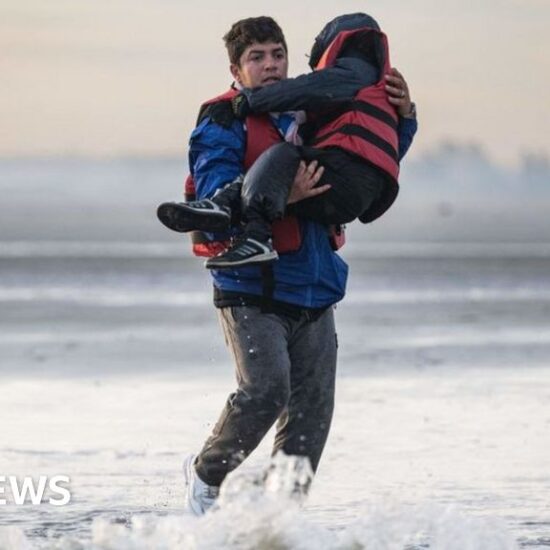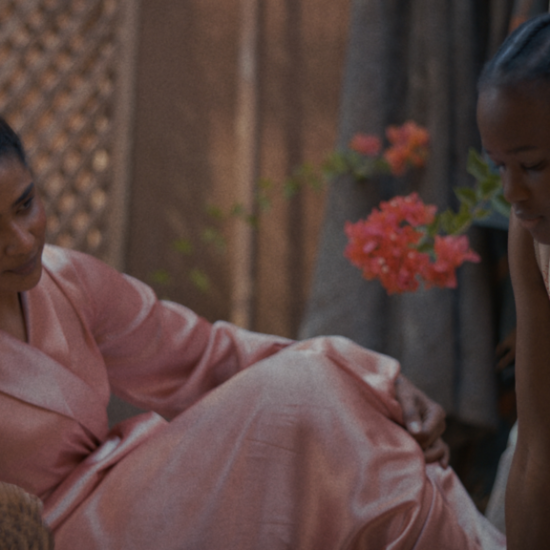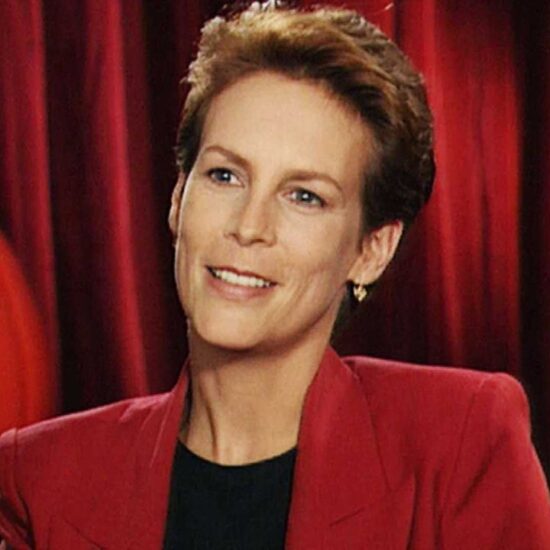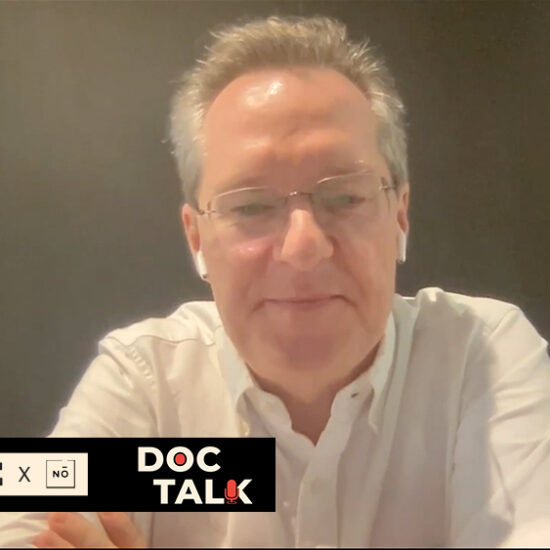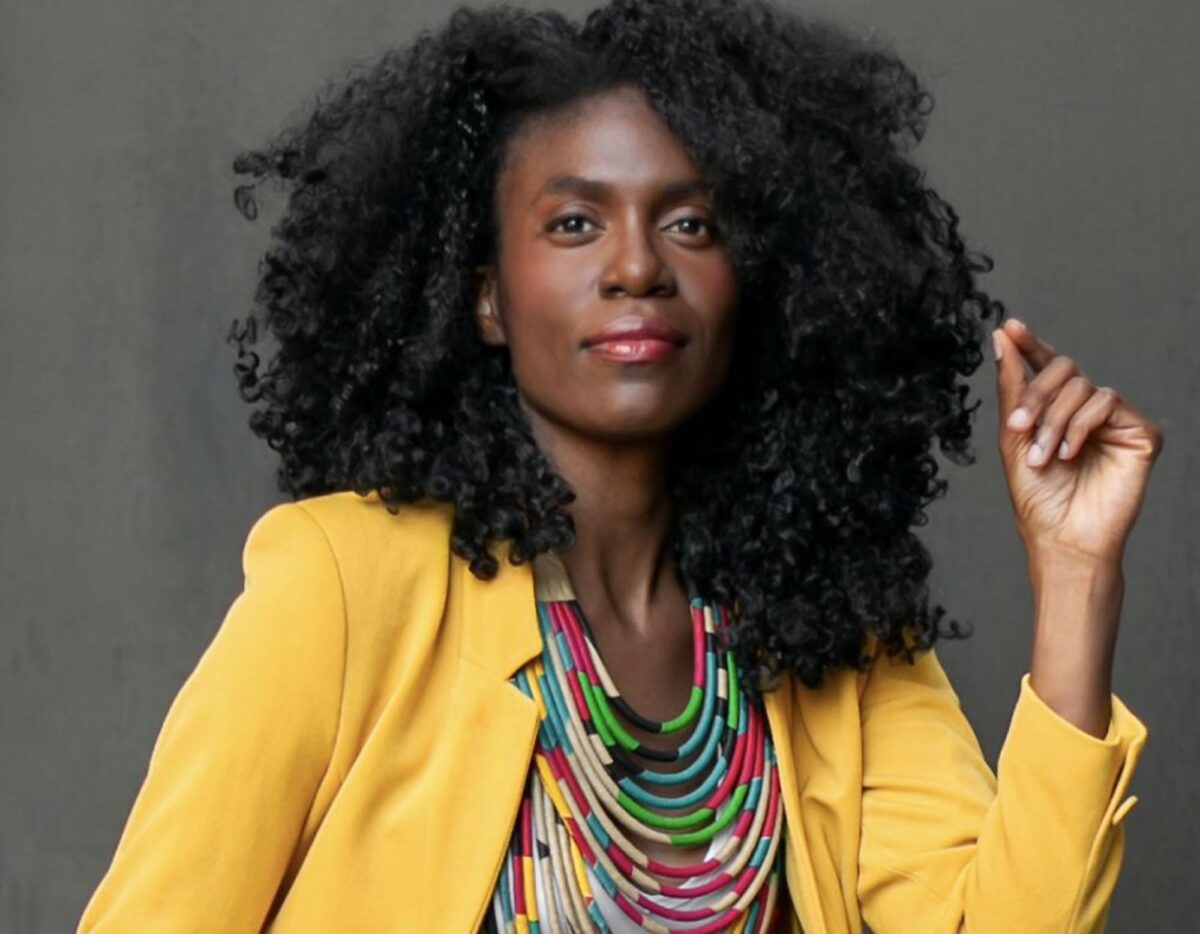
Fri Forjindam has one of the most exciting and creative jobs out there. Her role in crafting immersive experiences for popular IPs offers fans the opportunity to become involved in their favorite worlds, from the Upside Down that Stranger Things made so iconic to the long-time fanfare that has followed a Galaxy Far Far Away since Star Wars became a massive franchise.
Mycotoo, as a company, develops the experiences fans wish they could have on an everyday basis, as they take you into your favorite worlds with the characters you love and allow you to embark on your own version of the hero’s journey. But what goes into everything from immersive experiences to live entertainment? Fri Forjindam explains the impact of her career.
Culturess: How did you build your career?
Fri Forjindam: First, I think it’s acknowledging that it is a career because, for the longest time, the idea of making fun and getting to play every day didn’t seem like work. So, I’m fortunate enough to be in themed entertainment and be in an executive position, and I think being able to connect the dots between my original passion, which was starting in the theatre as an actress, and loving storytelling, story building, story inhabiting, recognizing the power of story and connection in being able to affect other people. And then being able to translate that into commercial theatre, where you are still building worlds of different scales, but you’re still trying to connect with other people.
I think my career path really reflected that ability to recognize those moments no matter what I was doing, whether as an executive assistant or as a production manager or as a hostess when I was first starting out. I think ultimately and innately being able to recognize the ability to connect with people through stories, through emotion, through recognizing the worlds that we were in, and the roles that we play in that. I think that ability was what allowed me to excel in whatever role I was in and essentially grow or elevate my career.
Culturess: What advice would you give to women to “tap into their inner unicorn” to create their dream life?
Fri Forjindam: I love this question. I think, just, ultimately, being unafraid to take space, and I mean like boldly take space. Not being worried about being liked. Not being worried about fitting in and making yourself smaller, and cutting yourself up into little pieces. Just being okay with letting other people choke on you. And choke on your shine and choke on your energy, and also choke on your ability to bounce back from your failure because that’s also important.
I think being a unicorn just is recognition that you are unique, that your skillset falls on your ability to own that uniqueness, to own that weird non-mainstream approach or perspective to things that is based on your limited experience. And being audacious about it, you know, and whatever that means for you.
Culturess: What stands out to you about artists such as Taylor Swift and Beyonce?
Fri Forjindam: First of all, just how amazing they are to be able to completely own a name. Meaning when you share Beyonce, you know there’s one and only. And, quite honestly, when you hear Taylor or Swift or Swiftie, there’s a very specific image and energy that is associated with that because they’ve been really intentional about crafting their message. Being consistent with their artistry and being very intentional about connecting with their audience through their music, through outside fan engagement, through non-profit associations, through philanthropy, through brand awareness, and really making an impact across all of those channels, which has just reinforced their name. I think for me, the biggest takeaway from watching both of them is that women can be at the helm of multi-billion dollar brands. Women can drive culture and do drive culture and always have.
And when you look at the ecosystem around creativity, it goes beyond just being talent, it’s also the power and the mentality behind creativity. It’s the platform on which you elevate others or allow others to be seen. It’s the ability to control not just the narrative but the equity the financial reward, and the brand that you’re creating or capitalizing from. All of those things are important to women as well as others, not just in the music space. Those two women specifically demonstrate that it is possible and it can be commercially viable as well.
Culturess: How do you turn IPs into immersive experiences?
Fri Forjindam: You work with people who are passionate. At Mycotoo we’re an entertainment development company, and we work on global brands and really allow our brands to have a very strong connection with their fans in different ways. From theme parks to live events to live experiences, and no matter what the scale of those experiences are, it starts with a story. The story isn’t just about what we want to tell, but why that narrative is important, and that is what drives vision. It’s what drives your ability to stick to the north star in terms of what is going to be important to your audience, and that story, that vision, staying true to the why, which is very much a part of Mycotoo’s process, is what has allowed us to take intellectual property that is already well known but then give it a different flavor or allow fans and audiences in an intimate form into the worlds of those IPs so they also feel they have agency.
They also feel like they connect in a deeper, meaningful way, and we’re not necessarily trying to repeat what you would be able to consume on your phone or on TV, so our ability to work with all the major studios up to this point is based on trust. It’s based on them seeing how we value these IPs, how we pay meticulous detail to each character, ask questions, and put ourselves not just in the IP owner’s hat but in the fans’ hats. So that passion, that curiosity, that deep dive, and that recognition of your waiters who just want to have a good time, to your swimmers that wanna get deeper and ask more questions, to deep divers that are super fans and know more about the IP. All of those are important. All of those audience members or demographics matter.
So being able to put yourself in their shoes while celebrating and lifting the story that has been so beloved, whether it’s Stranger Things or Mandalorian, the experience of working with DreamWorks for the theme park, that precision to making the story and keeping the why elevated and at the forefront is why we’ve been successful connecting the dots with IPs of different scales to the fans.
Culturess: How do you view each project you participate in?
Fri Forjindam: I always see everything as a new opportunity. You never go in with the answer. You always come in open with questions. You obviously come in with an expertise that’s based on previous projects and you’re starting to look out for flags or places where you don’t want to repeat if there was a learning lesson. You’re truly coming in open, and I think that’s ultimately where the theatre mentality comes in of the show must go on, and let’s figure out the best way forward. Let’s not necessarily come in with an agenda that may or may not serve the IP or partners.
But let’s come in with an open mind. Let’s certainly be flexible in adjusting to whatever the parameters are. But just staying open to whatever’s going to unfold and never assuming that you know more about the IP than the owner does and certainly more about the IP than the fans do because that is such a nuanced thing. I think just openness and curiosity and passion. You know, viewing that openness is critical.
Culturess: How would you say that creating an immersive experience for Stranger Things would be different from Star Wars?
Fri Forjindam: First, you know, it’s just as much fun to go into the Upside Down as it is to go to a Galaxy Far Far Away. So both of those are equally compelling and challenging in their own right. You have fans who are ravenous in one situation where these are fans who span multiple generations. In another situation, you have multi-generational fans that are also tapping into nostalgia but they’re living in the present. Both have very meticulous fandoms that will hold you accountable and hold you to task on what you got right and what you sort of skirted. I think we, as a team, as designers at Mycotoo, we hold ourselves to a very high bar on making sure that our design team is also as ravenous about the IP and as meticulous about the details as our fans and our core audience will be.
As well as putting on a different hat of saying, but if I wasn’t a superfan, what still makes this a compelling experience? What is the heart? What is in the DNA of this that just makes it a resonante human story? Which ultimately is why there’s been so much appeal for both Stranger Things and Star Wars. There’s a core sort of emotional connection that transcends whether it was made today or if was made in the 70s, it’s still a hero’s journey. It’s still an opportunity to be seen. It’s still, you know, kinda like a mecca for geeks and geezers and outliers and unicorns as we talked about unlocking their better selves through these heroic quests, through these supernatural devices. Both IPs have been able to do that successfully. And the Star Wars Mandalorian experience was certainly a thank you to the fans to be able to allow them to get up close to over 600 screen-used artifacts at the Anaheim Convention Center.
The Stranger Things experience was equally a thank you, going from city to city and allowing fans to become heroes, unlock their own journey, and to follow El and her friends on these amazing quests. Ultimately, it’s about, again, celebrating the IP, and being respectful of the hero’s journey, which is universal to both of these. But also making sure that you are infusing in it some of the details that are specific to each of those worlds that just allows the fans to say, ‘Yeah, you got it right. You couldn’t do this anywhere else except here, and expect with this IP.’ And when those moments happen, and you’ve seen them happen for both of them, that’s always a wonder.
Culturess: How do you see the future of live entertainment?
Fri Forjindam: Gosh, I hope it just keeps happening and going. Everyone right now is freaking out over AI. Everyone is panicking. Is it going to replace human interaction? We’ll see that playing out as we speak in trade negotiations, and while I don’t have a crystal ball to see what the future holds otherwise, I’d be a bazillionaire, I can say that we can learn a lot from history and humans, humanity, our ability to exist as the dominant species is our ability and our priority on connections, on emotional connection and socialization, and I think we’re also one of the few species that values the arts and creative expression as a way to connect.
Something so profoundly human that certainly came to the forefront during the pandemic when we were starved of that, and it has come back with a force. We’re coming back into live events for concerts, festivals, experiential events, brand activations, and restaurant promise. What it means to go out to eat together and break bread is an experience, a social event that isn’t about eating food. So, you know, live entertainment has expanded significantly. It isn’t just about paying someone and then letting them entertain you. It is a dialogue. It is a transaction that goes both ways. It is a connection and brands are tapping into that in a profound way because they also understand the value of aligning with lifestyle as a way to grow and maintain audiences and fans that translate into better business.
So live entertainment is a really exciting space now because we’re kind of in this renaissance of redefining what it means to be a participant, to be a creator. What does it mean to give money to someone, and what does it mean for you to get back? What are you getting back? Who owns the entertainment? Who is really benefiting from that, in terms of creating it and reaping the rewards? All of those discussions, whether it’s long or short, at the forefront is what allows us to decide if you are going to participate in something, if we’re going to consume a product, if we’re going to support it with our dollars, with our hashtag, with our allyship. And when brands know that, and consumers know that, as a power, it is an exciting place because it just raises the bar with all of the content and stories that we collectively support.
So live entertainment isn’t going anywhere. It’s evolving, and we’re starting to ride that wave and see what role we fit in, as content creators, as owners, and certainly as technology providers and special effects. But I think it’s all moving in an exciting direction.
Culturess: How does your professional background help you in your current career?
Fri Forjindam: Who knew that acting and being a theatre artist would allow me to be able to design theme parks and create live experiences on different scales? I certainly didn’t. I am a Cameroonian-born American citizen, and growing up, the idea of the career that I’m in, location-based entertainment, was not something that was apparent or obvious. I think over time, just recognizing the value of storytelling, the value of authentic connection, and the value of entrepreneurship and business acumen and logistics and just melding all of those things together has just allowed me to be able to thrive.
And luckily fortunately, I’ve been able to do that with partners that recognize that and are also intentional about that vision, and have really made that the forefront of what Mycotoo is all about. So, in our DNA, it’s about supporting the best experience, the most viable creative product, and the logistics of the business acumen that makes the most sense. Being able to deliver it on time and under budget is not easy. But when you diversify your team and you’re always looking for solutions from different areas, from different perspectives, that just makes for a better work product, for a better work culture, and certainly translates into better collaborations. And hopefully, attracts the right kind of partners, which, so far, we’ve been very fortunate to have. So for me, it’s exciting to be part of that. And to be able to bring my voice and add diversity and perspective to success.
Culturess: What makes Mycotoo the company to team up with?
Fri Forjindam: Oh my gosh, why not? Mycotoo is short for my company too. It’s really based on our philosophy of ensuring that our partners are as much a part of our company as we are. There’s no process. As an entertainment and development company, we’re fortunate in just telling great stories and working with amazing partners who trust us because we value the art of theatre. We value artistry as a form of connecting, engaging, and certainly of driving the economy and championing that from the top down as well as from the bottom up. And I’m not just saying that for lip service. I’m one of the owners who started in the garage.
My kid, my second son, was born while we were in the garage, so I understand very well the challenges and the insecurities that people face are meant to be able to have that from the beginning and to maintain that circle of trust and inclusivity and certain championing of all the work-life balances everyone has to make, it allowed me to thrive.
So being flexible, being open, and certainly always starting with “yes, and” that curiosity I talked about earlier is what has allowed us to transfer our skills, starting from theme park design to brand experiences. Working with Netflix on Stranger Things, I translate that to working with legacy artists like Prince in Paisley Park and looking at how to bring and tell his story after he lived into a world-class destination. Working with iHeart Radio Music Festival and helping them leverage the artistry and the brand relationships that they have into a compelling house of music experience that really connects with fans. That ability to translate across different disciplines that it’s all about entertainment and enrichment. I think really just starts with a mindset, which is our company is your company and vice versa. Diversity, openness, curiosity, and passion, are all things that allow for an easy work process. So, why should people team up with Mycotoo, ultimately if you wanna have a compelling experience that’s commercially viable, that’s really where we excel. We don’t just believe in great concepts. We believe in execution. I can’t think of any brand that doesn’t want to have a return on impact.
Culturess: What makes Mycotoo a company that makes you excited to work?
Fri Forjindam: I would say excited to work, as in just getting out of bed and showing up every day is who I am. It’s the reason why Mycotoo has unlocked or allowed me to sort of embrace that enthusiasm because it’s really been a place for me to recognize the importance of the creative arts as a benchmark. It really is a catalyst for the economy, as a catalyst for culture, community, and education. We really are at the intersection of vision and story and how we want our stories to be told years from now, as well as sustainability.
How do we want to be relevant today? How do we want to keep our lights on and be commercially viable today? And it’s also a historical account. Our ability to tap into the past and retell these stories and maybe even the stories that aren’t often told in other markets, not just Western IPs. It has allowed us to be global and have an appeal that isn’t just domestic but a global sense of entertainment responsibility. So recognizing my role as Chief Development Officer in that and Mycotoo’s role in that bigger conversation puts a different emphasis on what we do, that it isn’t just consumerism.
There is a long-term responsibility that really allows us to be very intentional. So the short answer is it’s just made me more intentional about stories that matter and making sure that people who look like me also know that they matter, and ultimately just having fun. You know, it’s an honor and a privilege to be able to say I make fun and to make a theme park and call it a benchmark or call it “work,” you know, that’s rad, so there’s the bigger sort of impactful responsibility that I think it’s really made me more intentional about. And ultimately, it’s a flex for my kids. I get to, like, bring them to work, and they’re like, ‘This is work?’








